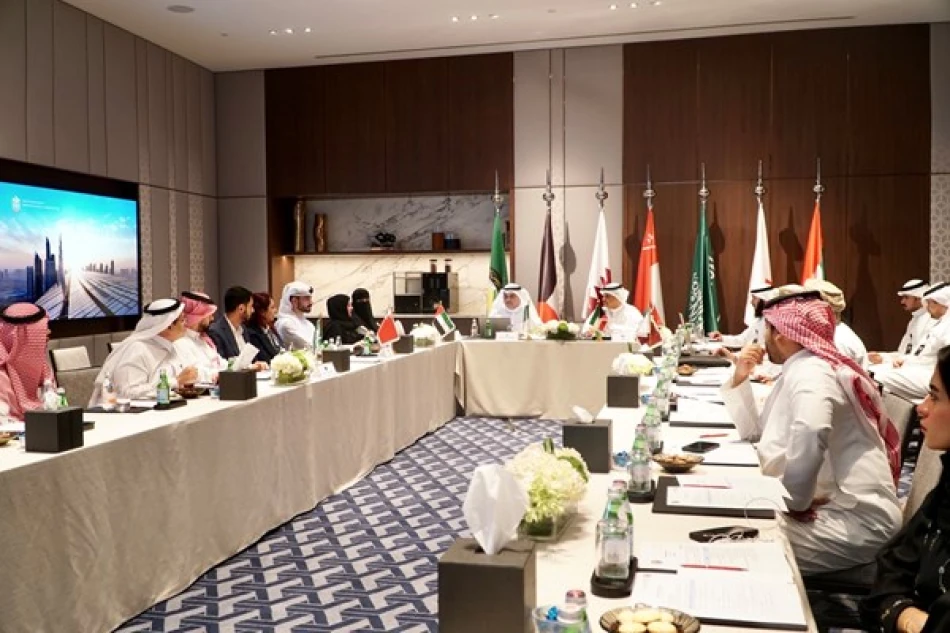
UAE Participates in 15th Gulf Renewable Energy Committee Meeting: Driving Sustainable Energy Transition
UAE Emerges as Gulf Energy Transition Leader with Ambitious 2050 Climate Strategy
The United Arab Emirates is positioning itself as the regional powerhouse for clean energy transformation, presenting a comprehensive roadmap at the 15th Gulf Committee for Renewable and New Energy meeting in Kuwait. With its UAE Energy Strategy 2050 targeting carbon neutrality and a diversified energy portfolio spanning solar, nuclear, and hydrogen technologies, the Emirates is setting the pace for Gulf Cooperation Council nations navigating the post-oil economy transition.
Strategic Energy Diversification Beyond Oil Dependency
The UAE's Ministry of Energy and Infrastructure outlined an integrated approach that goes far beyond traditional renewable energy mandates. The nation's 2050 strategy encompasses multiple pillars: enhancing renewable energy reliance, improving consumption efficiency, promoting clean energy adoption across sectors, and fostering research and development in energy technologies.
This comprehensive framework represents a calculated economic hedge against volatile fossil fuel markets while capitalizing on the UAE's geographic advantages for solar and wind generation. The strategy also includes waste-to-energy projects and nuclear power development, demonstrating a pragmatic approach to energy security that other Gulf states are closely monitoring.
National Demand Management as Economic Tool
Central to the UAE's presentation was its National Program for Water and Energy Demand Management, which functions as both an environmental initiative and an economic efficiency driver. This program addresses the Gulf region's historically high per-capita energy consumption rates, turning conservation into a competitive advantage for businesses and reducing infrastructure strain.
Regional Leadership Through the "UAE Consensus"
Engineer Nawal Al Hinai, Director of Future Energy Management at the Ministry of Energy and Infrastructure, emphasized how the UAE's clean energy transition forms a cornerstone of balanced economic growth that protects environmental resources. She highlighted the nation's role in delivering on the outcomes of what she termed the "historic UAE agreement" — likely referencing the UAE Consensus from COP28 — which marked a global turning point in climate action.
This positioning as a climate diplomacy leader gives the UAE significant soft power advantages in international negotiations and attracts green investment capital that other regional economies are competing for.
Investment and Market Implications
The UAE's comprehensive energy strategy creates multiple investment opportunities across emerging sectors. Solar projects benefit from some of the world's highest irradiation levels, while the country's hydrogen ambitions position it to become a major exporter to European and Asian markets seeking clean fuel alternatives.
For regional competitors like Saudi Arabia and Qatar, the UAE's early-mover advantage in clean energy infrastructure and international partnerships represents both a challenge and a template. The Emirates' approach of balancing traditional energy revenues with future-focused investments offers a potential model for Gulf states managing their own energy transitions.
Technology Hub Positioning
Beyond energy generation, the UAE is establishing itself as a regional center for developing and implementing innovative clean energy solutions. This technology focus creates value-added economic opportunities beyond commodity energy exports, potentially making the UAE a service provider for regional energy transitions rather than just a competitor.
Gulf Cooperation Council Dynamics
The UAE's leadership in presenting comprehensive clean energy strategies at GCC forums signals its intention to shape regional energy policy coordination. As Gulf states face similar challenges in economic diversification and climate commitments, the UAE's integrated approach to renewable energy, efficiency, and international partnerships provides a framework that could influence broader GCC energy cooperation initiatives.
This regional leadership role strengthens the UAE's position in attracting international clean energy investments and partnerships, creating a competitive moat that will be difficult for neighboring countries to replicate without similar comprehensive strategies and early implementation timelines.
Most Viewed News

 Layla Al Mansoori
Layla Al Mansoori






